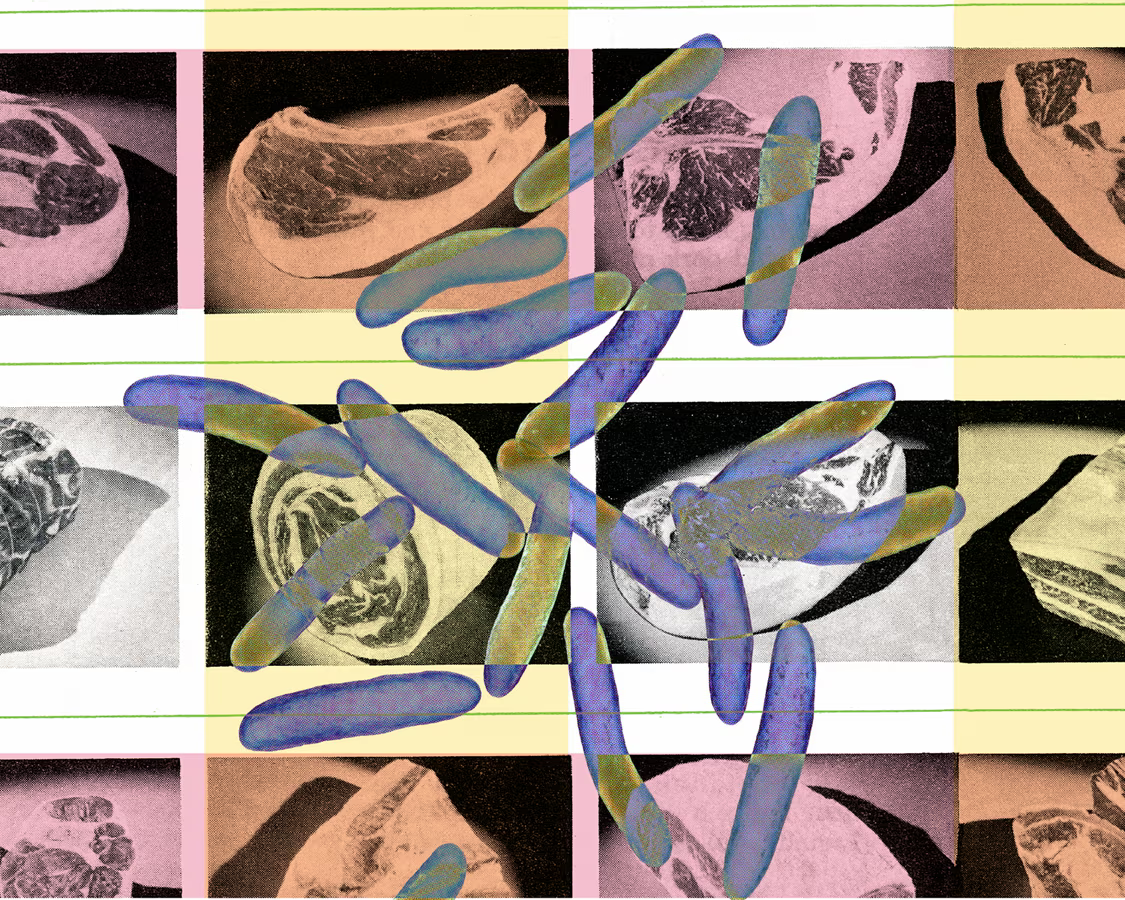"Home cooks often underestimate the risk of bacterial contamination in their kitchens," says Doctor Siyun Wang, a professor of food safety engineering at the University of British Columbia (Canada).
According to her research, bacteria like E. coli, salmonella, and listeria can easily spread from raw meat, eggs, and vegetables to other surfaces, such as refrigerator handles or faucets, and can survive for weeks.
To avoid cross-contamination, wash your hands frequently and thoroughly for at least 20 seconds under warm running water, then dry with a clean, dedicated towel.
Here are 8 habits to cultivate to prevent food poisoning:
Disinfect surfaces: Doctor Jae-Hyuk Yu, a professor of bacteriology at the University of Wisconsin-Madison, recommends using bleach solutions or alcohol-based sprays to clean hard surfaces, especially after handling raw meat. When using cleaning agents, wear gloves and ensure good ventilation. He also advises cleaning refrigerator shelves monthly and maintaining a refrigerator temperature below 4 degrees Celsius to inhibit bacterial growth.
Cook meat thoroughly: Always cook meat to the proper internal temperature according to safety guidelines: 63 degrees Celsius for whole cuts of beef, pork, lamb, veal, and fish (rest for 3 minutes after cooking), 71 degrees Celsius for ground meats, and 74 degrees Celsius for poultry.
Doctor Yu uses plastic cutting boards instead of wooden ones for meat because wood has porous grooves that can trap bacteria from raw meat, making them difficult to clean. However, he also recommends thoroughly washing any cutting board with hot water and antibacterial soap after each use.
 |
Bacteria increase the risk of illness when you don't follow safety rules. Photo: Guardian |
Bacteria increase the risk of illness when you don't follow safety rules. Photo: Guardian
Replace or clean dish sponges and cloths regularly: "Dish sponges are breeding grounds for bacteria," warns Doctor Yu. "If you use a sponge to wipe a knife after cutting raw chicken and then use it to wash other dishes, you are spreading bacteria."
If you must use a sponge, wet it and microwave it for 1-2 minutes daily or wash it in the dishwasher with a heated drying cycle. Doctor Yu replaces his sponge weekly and prefers using washable cloths that can be laundered in hot water and changed daily.
Thaw meat properly: Thawing meat at room temperature is convenient, but it allows the outer layer of the meat to enter the "danger zone" of 4-60 degrees Celsius, where bacteria multiply rapidly, while the inside remains frozen. Instead, thaw meat in the refrigerator. If you need to cook it immediately, use the microwave or place the meat in a sealed bag, submerged in cold water, changing the water every 30 minutes. This method maintains a safe temperature and limits bacterial growth.
Don't leave food out overnight: Leaving food at room temperature overnight is like "cultivating bacteria," according to Morticia, a microbiologist and medical laboratory scientist based in Idaho, who shares food science knowledge on social media. Bacteria can produce enterotoxins that cause vomiting, and many of these toxins are "heat-stable," meaning they can still make you sick even after reheating. Morticia particularly warns against starchy foods like rice and noodles, as Bacillus cereus can grow in just a few hours if left out.
Refrigerate leftovers within 2 hours. For extended meals (like indoor parties), food can be left out for a maximum of 4 hours; however, in hot environments like outdoor barbecues, the safe time is shorter. According to the FDA and USDA, cooked food should only be kept refrigerated for 3-4 days. If frozen, food can be kept safe for much longer.
Pay attention to "best before" dates: "Following expiration dates is a simple yet effective way to avoid health risks," according to Doctor Alvaro San Millan, a bacteriologist at the National Center for Biotechnology in Madrid.
Some foods, like packaged snacks, may still be safe to consume after their expiration date if unopened and stored correctly. However, you can't always smell or taste when food has gone bad. "Food with an unusual smell or taste is a clear warning sign," he says. But certain bacteria, like salmonella, can cause illness even at low concentrations.
Usually, consuming problematic food only causes mild digestive upset. But if you are unlucky enough to contract bacteria like listeria, salmonella, or botulinum toxin, you could face serious danger.
Don't assume salt, vinegar, or spices kill bacteria: For millennia, people have used salt and vinegar to preserve food. But adding these ingredients to a dish doesn't make it "safe from bacteria." While they can slow spoilage under certain conditions, as with jerky or sauerkraut, this does not guarantee the elimination of harmful bacteria. There have been outbreaks of listeria and salmonella from pickled foods.
Don't assume organic food is safer: "There's not much difference in contamination levels between organic and conventional foods," says Morticia.
However, buying from local suppliers reduces the risk of contamination. This is because the food goes through fewer intermediaries, meaning less handling by people or equipment. Moreover, the time it takes for the food to reach the consumer is shorter.
Bao Nhien (Guardian)












